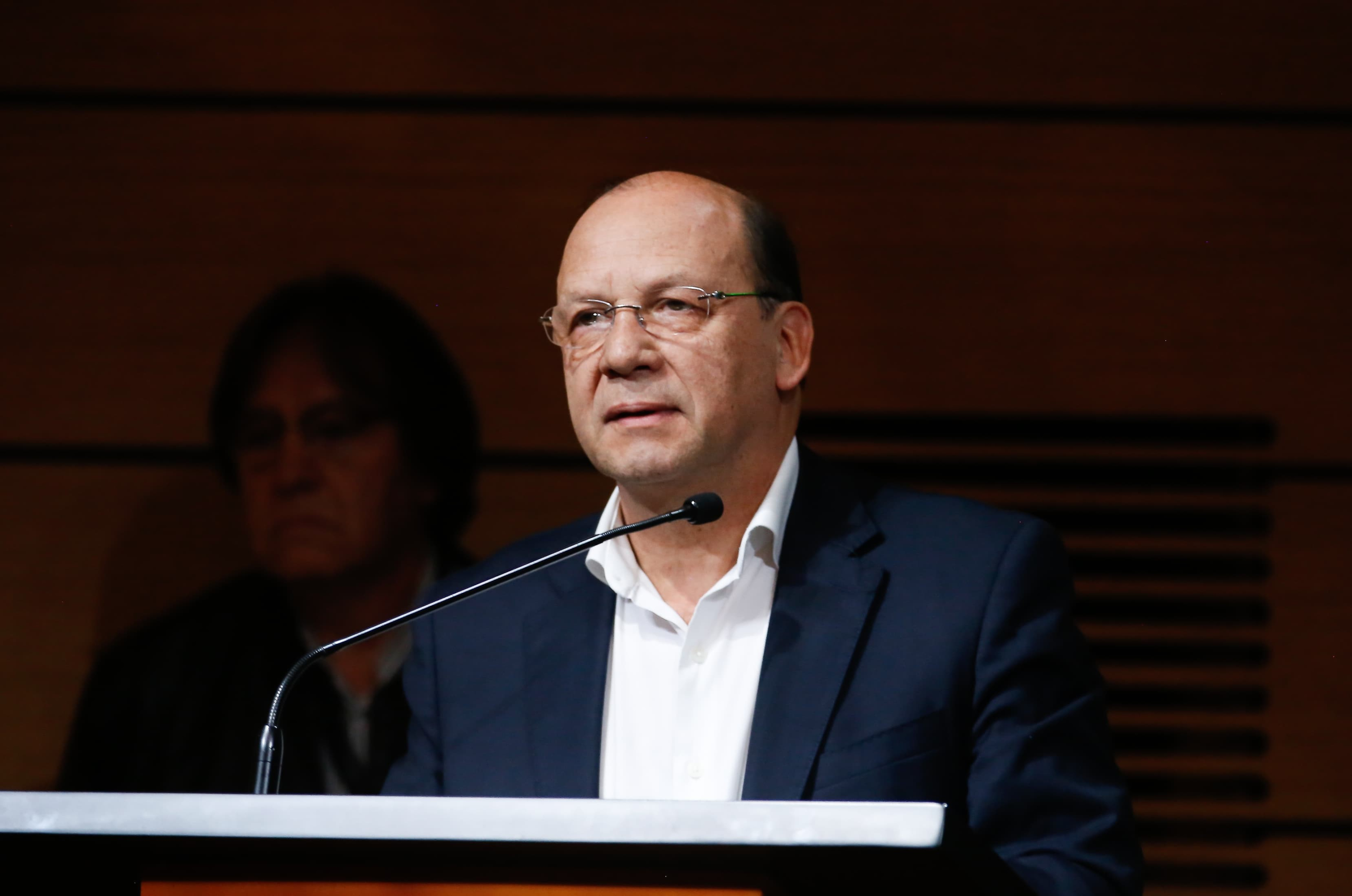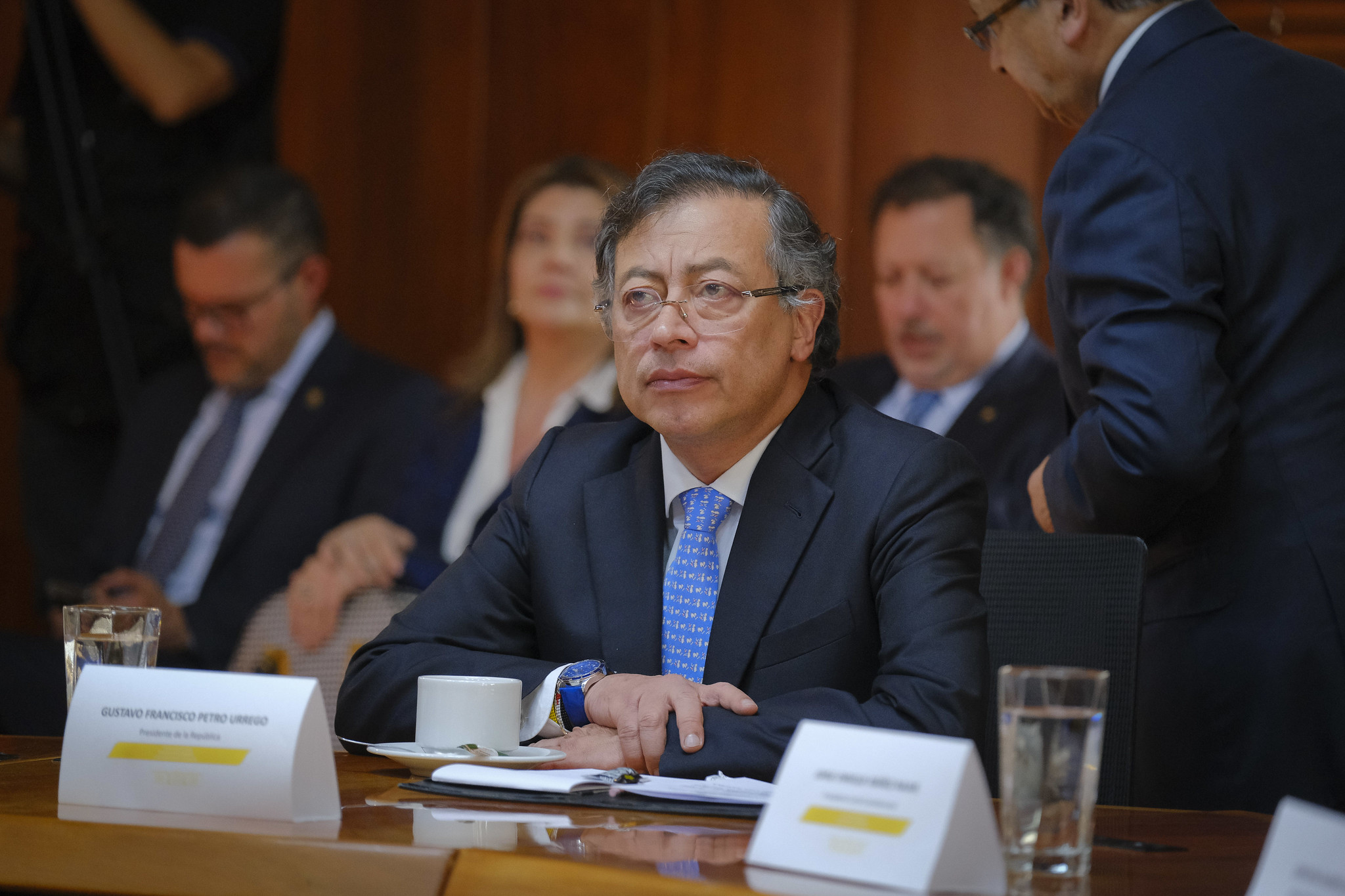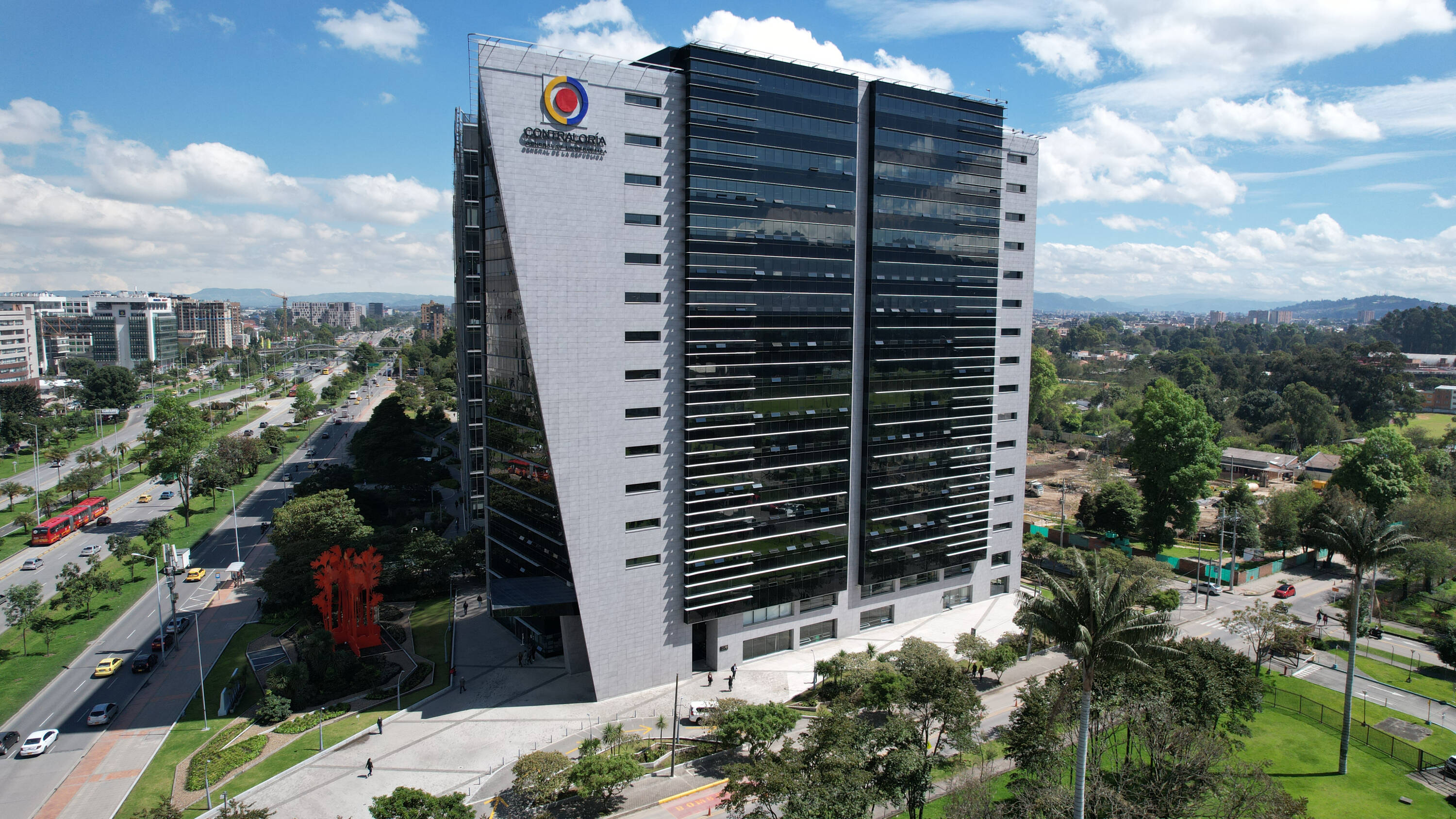'The Government must make a serious effort to reduce operating expenses': Comptroller General

"From the Comptroller General's Office, I express my deep concern about the decisions that, taken together, constitute a 'dangerous cocktail' for the country's public finances ." With these words, Comptroller Carlos Hernán Rodríguez reacted to the announcement by Finance Minister Germán Ávila regarding the suspension of the fiscal rule for three years.
Rodríguez is a lawyer from Palmira specializing in administrative law and holds a master's degree in constitutional law. Speaking with this columnist for EL TIEMPO, the Comptroller stated that " the activation of the escape clause and the suspension of the fiscal rule are not isolated incidents: they are compounded by an unbalanced budget, advance payments of revenue that compromise future resources, and growing, inflexible spending. This measure could lead to a deterioration in confidence and put the principles of sustainability and fiscal responsibility under strain."
The minister said that failure to adopt this measure would have jeopardized both stability and economic growth. What do you think? Beyond the technical arguments the government may put forward, stability and economic growth should not be guaranteed by sacrificing fiscal discipline. As a supervisory body, we warn of the risk of maintaining a public spending model that has not been structurally adjusted and that, rather than responding to efficiency criteria, continues to generate unsustainable pressures on the budget. The lack of action on operating expenses compromises future growth more than the application of the fiscal rule itself.
Minister Ávila explained that the fiscal rule's escape clause was activated… The escape clause is an exceptional instrument contemplated in the law; its use occurred during the pandemic and is now being used again. It must be accompanied by clear and targeted measures to return to the fiscal rule framework. From the Comptroller's Office, we insist on the need to present a coherent roadmap to prevent this tool from becoming a permanent path to fiscal imbalance.
According to the minister, the measure seeks to protect social investment and avoid cuts that would worsen the current situation… The Comptroller's Office is clear: investment must be protected and prioritized, but that cannot justify an expansion of spending without permanent revenue support or an avoidance of the structural adjustment the country requires. What we have proposed is that, before considering a new tax reform, the government must make a serious effort to reduce operating expenses, review inefficient subsidies, and control accumulated liabilities that are putting pressure on the national budget. Talking about new tax reforms is simply blaming various actors for their lack of seriousness in managing public finances.

Germán Ávila, Minister of Finance. Photo: Néstor Gómez, EL TIEMPO
I express this with deep concern, because I don't want to think that tomorrow, when greater difficulties arise, they will say that the Comptroller's Office has been deemed an entity that has failed to fulfill its mission, because we have done so, and in a timely manner. Therefore, beyond protecting social spending, we call for prudence and responsibility in the management of public resources.
One of the most important issues in the current national debate concerns the fiscal rule, which is a regulation requiring the national government to meet a fiscal deficit (the difference between revenue and expenditure) for a period of time that depends on the level of debt incurred in the previous year. The fundamental debate is whether or not the government's debt is excessive.
Are there limits to the level of government debt? If the National Government has a significant level of debt at the end of the year, it must tighten its belt in the following period by lowering its deficit or even generating surpluses.
What does "tighten your belt" mean? Is it a request for immediate implementation? In this context, it means that the deficit must be reduced or a surplus generated in the following year, and this is achieved either by increasing revenue or decreasing expenses, or both at the same time. The fiscal rule provides for the adjustment to be made in the immediately following year.
What is the so-called "escape clause" of the fiscal rule? The escape clause allows the government to temporarily waive the fiscal rule. That is, regardless of the debt level, the government is not required to reduce the deficit or generate surpluses. In other words, it is not required to make adjustments to revenue or expenditure. Although the escape clause is contemplated in current regulations (paragraph 2 of Article 60 of Law 2155 of 2021), it must be justified by extraordinary events or those that jeopardize the country's macroeconomic stability, situations that do not appear to currently occur.
According to experts, the so-called escape clause gives the government a kind of blank check to go into debt for up to three years. This has sparked a national alarm. Is the alarm justified? It is important to clarify several elements in order to provide a complete and balanced overview of this issue. While it is true that the escape clause frees the National Government from meeting a fiscal deficit target, this does not mean it can expand public spending and debt levels, as there are other budgetary and fiscal planning mechanisms that must be taken into account. Among these is the Medium-Term Fiscal Framework, which charts the path of public finances for the next 10 years and outlines the fiscal strategy the National Government should follow.

The President responded to criticism of Finance Minister Germán Ávila. Photo: Ovidio Gonzalez. Presidency
It should reflect, as realistically as possible, revenue and expenditure projections adjusted to the performance of the economy and subject to the structural limitations of state finances. The general budget is where fiscal restraint and prudence must be reflected, thus avoiding the assumption of debt levels that could be too burdensome for public finances and threaten their medium- and long-term sustainability.
Comptroller Rodríguez, in your technical and legal opinion, what does the suspension of the Fiscal Rule mean? What they call the suspension of the fiscal rule, for me, means a temporary pause and modification of the fiscal deficit target requirements that the Central National Government must meet in 2025 and subsequent years, in accordance with the Fiscal Rule Law. But this suspension or activation of the escape clause can only be carried out by a government when extraordinary events occur that jeopardize the country's macroeconomic stability. In other words, this means that the government, under the circumstances that motivate the activation of this clause, may have higher fiscal deficit targets than those initially stipulated in the law.
While it is true that the escape clause frees the Government from meeting a fiscal deficit target, this does not mean that it can expand public spending and debt levels, since there are other budget planning mechanisms.
The fiscal rule, in any case, requires the National Government to establish a realistic and concrete plan to once again meet the fiscal targets it establishes. At this point, the Comptroller's Office will be attentive to analyzing and commenting on this plan, in order to determine its adequacy and relevance, and to ensure we regain the fiscal discipline required in public finances.
The fiscal rule acts as a limit to prevent governments from over-borrowing. Does that risk exist at this time? Indeed, the fiscal rule seeks to ensure the sustainability of public finances, and this is expressed by establishing debt limits. Thus, the Fiscal Rule Law established that the Central National Government's (CNG) debt limit is equal to 71 percent of GDP and the debt anchor is equal to 55 percent of GDP. By 2024, the CNG's net debt was equivalent to 59.3 percent of GDP, indicating that we are close to 10 basis points from reaching the established limit. In this sense, the risk of a government lacking fiscal space in the near future has indeed been raised, and the pursuit of fiscal sustainability cannot be lost sight of.
But then what can happen? A drop in revenue may force the government to cut spending to comply with the Fiscal Plan and the fiscal rule, or it may attempt to execute the budget. Given the lower revenue, this could lead to a larger fiscal deficit and an increase in debt, pushing it further away from the anchor or prudential level of 55.0 percent of GDP.
Do you think more discretionary management of public spending can be achieved? In this regard, it should be noted, first of all, that both the government's revenue and expenditures during a given fiscal year must, by law, be included in the General Budget of the Nation, which generally corresponds to a law approved by the Congress of the Republic.
Secondly, a government's annual spending is limited to compliance with regulations, and in that sense, currently and for a long time, public spending executed through the General Budget of the Nation is highly inflexible (General Participation System (SGP), debt, personnel expenses, subsidies, health care, pensions, among others), and, as everyone knows, discretion is largely limited to investment spending. In that sense, I believe, even without knowing the exact government's statement and the details that would motivate the escape clause, that the government will not increase its spending in 2025 beyond what has already been approved during this term.

According to Rodríguez, the Comptroller's Office will constantly monitor the execution of public spending. Photo: Milton Diaz / El Tiempo
In fulfilling its constitutional and legal functions, the Office of the Comptroller General of the Republic is always committed to monitoring and controlling public resources, whether in the collection of revenue sources or the execution of expenditures. However, as new resources are included, the Office of the Comptroller General of the Republic will monitor them, seeking to ensure that the execution of public spending becomes increasingly efficient.
What oversight and warning mechanisms does the Comptroller's Office have in place today to prevent the potential political use of public spending? The Comptroller's Office will be constantly monitoring the execution of public spending.
President Petro announced the call for a referendum to vote on the reforms he has proposed, which the Senate has failed to approve. How much will the referendum cost? Where will the funding come from? The cost of the referendum would be between 700 and 750 billion pesos. As it is an act of the Central National Government, the resources for a referendum must be included in the General Budget of the Nation and secured by the State through funds allocated to the National Civil Registry.
How does the Comptroller General's Office view the government's performance regarding public spending? Public spending must be adequate and targeted to generate the goods and services necessary for the country's development.
eltiempo





